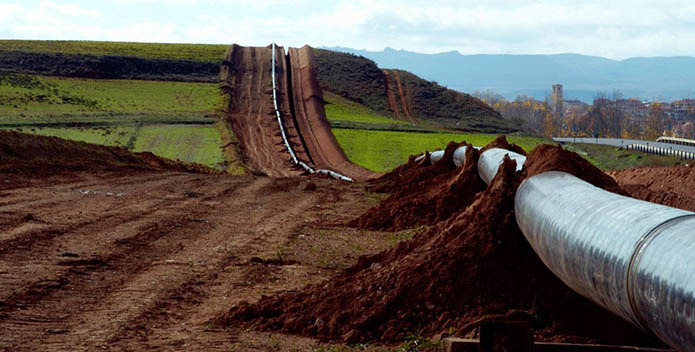The following first appeared in, Richmond Times-Dispatch.
Families in Virginia should not have to worry about their drinking water or whether in the future their children will continue to enjoy the same clean creeks and streams that we fish and swim in today. Yet Virginia environmental officials find themselves at a crucial moment, poised to make a decision that could either protect our waters or put us on a path toward endangering our most valuable natural resource.
Dominion plans to build the Atlantic Coast Pipeline through the heart of Virginia's most intact forests and steep mountain landscapes. It will cross Virginia waterways approximately 1,000 times, including many streams, rivers, and wetlands in the Chesapeake Bay watershed.
Construction of this pipeline would mean the large-scale disturbance of thousands of acres of land in its path, putting hundreds of our streams, rivers, and wetlands at risk of harmful sediment pollution from erosion and stormwater runoff. What's more, clearing this land means thousands of acres of trees and forested land that keep our air and water clean will be gone, and more pollutants will be able to flow into our waters.
And in a direct assault on our waters, construction would also require in-stream trenching and blasting that scientific analysis shows would lead to a surge of sediment and nutrient pollution.
But this pipeline is not a done deal. The State Water Control Board members have the authority to stop this pipeline from moving forward until changes necessary to protect water quality are made. The board has the authority to reject the Department of Environmental Quality's draft water quality certification if it finds that it is inadequate. As it stands, the draft certification lacks critical information for the board to make a sound decision.
For instance, the DEQ decided to wait to review erosion and sediment control and stormwater management plans until after the water quality certification process. Yet unless this critical information is carefully evaluated as part of the certification review, the board cannot issue this permit in accordance with the law.
The Clean Water Act requires that before certifying a federal permit or license, states must have "reasonable assurance" that state water quality standards will not be violated. At this time, the board does not have that assurance.
Congress specifically intended the Clean Water Act to give states the ability to block projects, which might otherwise win federal approval, for environmental reasons. The Atlantic Coast Pipeline is the embodiment of the kind of project Congress envisioned when it rightly gave states this authority.
State environmental agencies considering water quality certifications for the Atlantic Coast Pipeline and Mountain Valley Pipeline in North Carolina and West Virginia have recently shown that they are serious about exercising their legal authority to protect state waters. Both states have slowed down their review process to take a closer look at how the construction of natural gas pipelines would diminish water quality for the people living those states.
Virginians should expect no less. We should not be beholden to Dominion's timeline to build its pipeline and race forward toward a water certification without first understanding the risks to our waterways and requiring adequate, specific mitigation plans. Our state officials must take this process seriously.
The role of Virginia's environmental leaders to safeguard our water has never been more clear or important. Without their approval, Dominion cannot build this pipeline. Until the Department of Environmental Quality addresses the deficiencies of the draft water quality certification, the State Water Control Board must exercise its authority under the Clean Water Act and deny approval.
Greg Buppert is senior attorney for the Southern Environmental Law Center, and may be contacted at [email protected].
Peggy Sanner is senior attorney and Virginia assistant director for the Chesapeake Bay Foundation, and may be contacted at [email protected].
Greg Buppert and Peggy Sanner
Issues in this Post
Land Use Atlantic Coast Natural Gas Pipeline Conservation Habitat Loss Water Quality CBF in Virginia



